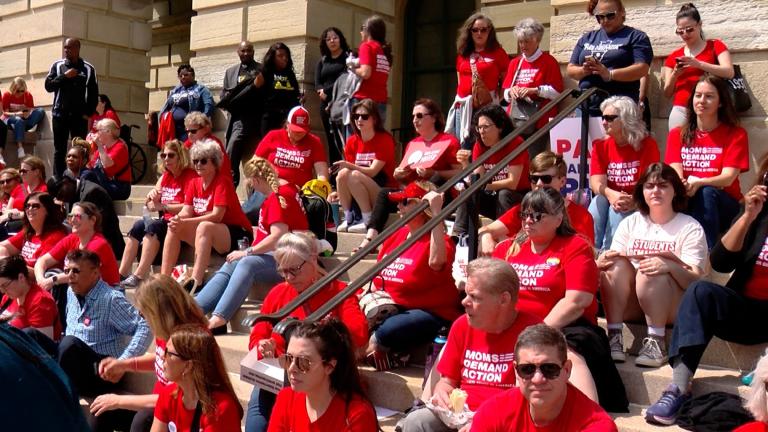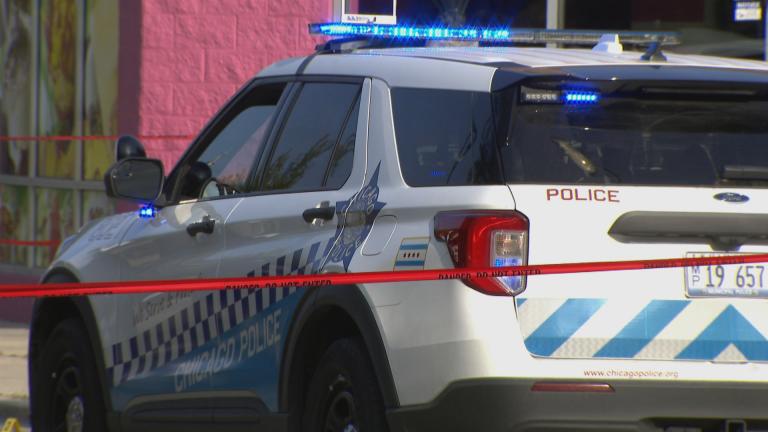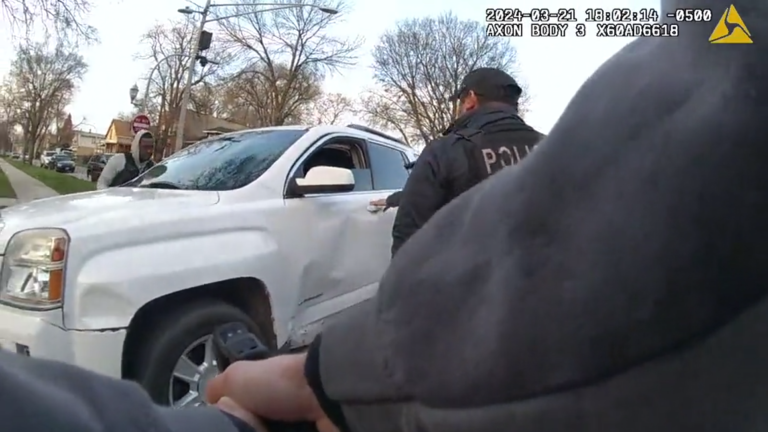 (WTTW News)
(WTTW News)
Illinois’ rules requiring residents to register guns the state classifies as “assault weapons” are final, putting an end to months of ambiguity and acrimony over the specifics of a 2023 law — even as lawsuits seek to strike down the law completely.
Among the legal challenges are a petition filed Monday with the U.S. Supreme Court by the Illinois State Rifle Association and the National Association for Gun Rights, asking justices to overrule the 7th Circuit Court of Appeals and find that Illinois’ law violates the Constitution’s Second Amendment.
“It’s time for the Supreme Court to step in, enforce its own precedents, and smack down the activist judges who think they’re above both the Supreme Court and the Constitution,” Dudley Brown, president of the National Association for Gun Rights, said in a news release.
The assault weapons ban, officially called the Protect Illinois Communities Act, passed after a mass shooting at the 2022 Fourth of July parade in suburban Highland Park. The law banned the sale of AR-15s and scores of other guns beginning in mid-January 2023.
People who previously owned guns subject to the law are allowed to keep them, but were required to register with the Illinois State Police by the end of 2023.
A bipartisan group of legislators, the Joint Committee on Administrative Rules, or JCAR, had the responsibility of approving how the ISP would conduct the registration process.
Now, two months into 2024 — or two months past the registration deadline — that’s done.
At a JCAR meeting last month, the committee’s Republicans voted to formally object to ISP’s registration proposal on the basis that it was “subjective and open to broad interpretation” to the point that Illinois residents wouldn’t know how to comply.
“The process and the calendar management of ISP has been very frustrating,” state Rep. Ryan Spain, R-Peoria, who serves as co-chair of the commission, said at the time. “They’ve created moments of crisis in this process through their own failure to promulgate rules in a timely manner. We’re at the one-year anniversary of the passage of this legislation. Their emergency rules were not filed until September, and their permanent rules were filed much too late, at the last second, in December. So they’ve created a lot of controversy and ambiguity for gun owners about what are the rules of the game.”
Among Spain’s concerns were that the rules don’t cover issues like what a gun owner who registered a gun should do if that person’s FOID card is revoked, meaning the person is no longer legally allowed to have any gun.
ISP had to formally respond to JCAR’s objection.
In its response, ISP defended the rule and the route the agency took to draft it.
“The Illinois State Police took extensive steps to make the rule as simple and clear as possible so it could be understood by the persons and groups the rule effects,” ISP said in a response to JCAR filed Feb. 8.
The ISP pointed out it held three public hearings on the rules, responded to “hundreds of public comments/questions” and added an extensive Frequently Asked Questions section to the ISP website.
“The Department (the ISP) appreciates the input from JCAR, stakeholders, and the public in developing rules that implement the act,” ISP said in a letter signed by Director Brendan Kelly.
According to the ISP website, 29,357 people registered 68,992 guns and 42,830 gun accessories between October 2023 and the end-of-year deadline.
Through January, another 6,262 individuals filed assault weapons affidavits with the ISP, giving notice of ownership of 11,802 firearms and 7,459 regulated gun accessories.
Though guns were to be registered before the start of 2024, Gov. J.B. Pritzker said the ISP would accept affidavits after the deadline.
Owning or carrying an unregistered qualifying gun, accessory or high-capacity ammunition is a misdemeanor that carries a punishment of a fine up to $2,500 or a year in jail on the first offense; subsequent violations would be considered felonies.
However, some sheriffs have said they will not enforce the law.
A major point of contention with the rules was what would happen to the ISP’s gun ownership records if a court strikes the 2023 law.
The ISP rules said registration records would be destroyed should the U.S. Supreme Court or another federal court deem the law unconstitutional.
Contact Amanda Vinicky: @AmandaVinicky | [email protected]








